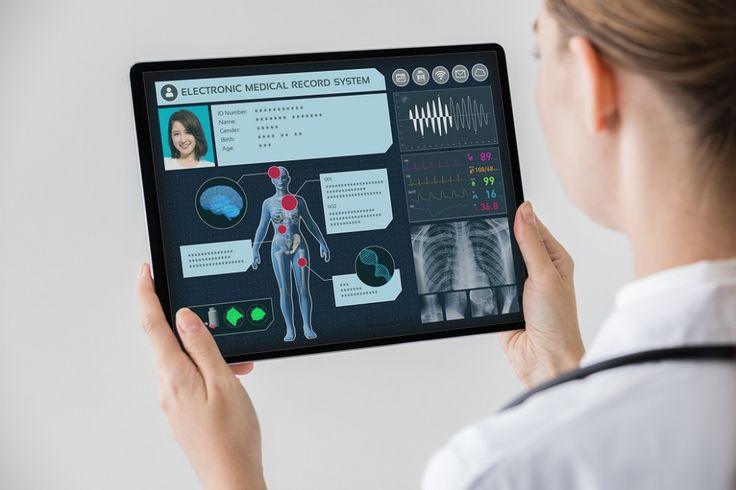Continuity of care has long been a cornerstone of effective healthcare, playing a vital role in ensuring positive patient outcomes and fostering trust in the patient-provider relationship. Consistent and uninterrupted care allows patients to benefit from improved communication, an enhanced understanding of their health, and ultimately better health results. However, locum doctors who step into temporary positions face unique challenges in maintaining this continuity. The pressures of quickly adapting to new environments and establishing rapport with patients in a limited timeframe can hinder their ability to provide the seamless care essential for effective treatment.
This blog explores essential strategies that locum doctors can employ to maintain high-quality, consistent patient care, ensuring they remain a vital part of the healthcare system.
A comprehensive handover process is crucial for maintaining continuity of care. At the start of your assignment, ensure you receive a detailed handover from the outgoing doctor. This handover should include essential information about each patient’s history, ongoing treatments, and any potential issues. Don't hesitate to ask questions or seek clarification on uncertainties; understanding the nuances of each case is vital to providing high-quality care. When your shift concludes, provide clear and detailed notes for the incoming doctor, outlining the current status of each patient and any changes that have occurred. This meticulous approach enhances care quality and fosters a collaborative environment among colleagues.
Building rapport with your new colleagues is essential for seamless patient care. Introduce yourself to the team, understand existing dynamics, and clarify expectations. Strong communication fosters teamwork, which is vital for maintaining continuity of care. Effective communication also extends to patient interactions; ensure that you introduce yourself, explain your role, and outline the duration of your care. This transparency builds trust and reassures patients and their families that they are in capable hands.
Engaging in active listening is fundamental for locum doctors. Take the time to understand patients' concerns and preferences. Show genuine interest in their experiences, creating an environment of trust where they feel comfortable sharing their worries. Demonstrating empathy is equally important—acknowledge any anxiety patients may have about changes in their healthcare provider. Validating their feelings alleviates fears and cultivates a sense of security, encouraging better cooperation with treatment plans and improving health outcomes.

In our increasingly digital world, technology serves as a crucial tool for maintaining continuity of care. As a locum doctor, it's essential to familiarise yourself with the electronic health record (EHR) systems used at the practice. By doing so, you can access patient information swiftly and efficiently, allowing for timely and informed decision-making.
Being adept with these systems enhances your management of patient information, ensuring that you have the necessary data at your fingertips to provide optimal care. Moreover, this capability strengthens the patient-provider relationship by facilitating open communication and transparency regarding patient histories and treatment plans.
Comprehensive documentation is vital for maintaining continuity of care, especially as a locum doctor. Accurate record-keeping serves as the foundation for effective patient management and ensures that all healthcare professionals involved in a patient's care have access to crucial information. It is essential to maintain detailed and precise patient records throughout your shift, capturing all relevant information, including diagnoses, treatment plans, and patient responses.
This level of documentation not only helps in tracking the patient's progress but also provides a clear account of the patient’s journey through the healthcare system. By meticulously recording each interaction, you create a valuable resource that facilitates seamless care continuity for the next healthcare professional. This practice reduces the risk of miscommunication and errors, ensuring that patients receive consistent and high-quality care, regardless of the provider.
Maintaining continuity of care as a locum doctor is both a challenge and an opportunity. By prioritising thorough handovers, effective communication, clear documentation, and the use of technology, locum doctors can significantly enhance patient outcomes and ensure a seamless healthcare experience. These efforts not only enrich your professional journey but also positively impact the lives of the patients you serve. Committing to these strategies fosters trust, ensures high-quality care, and affirms the essential role of locum doctors within the healthcare system.
At Verovian Medical Agency, our mission is to support locum doctors like you in overcoming the challenges of the healthcare landscape. With access to an extensive network of healthcare facilities across the UK, we provide a wide range of positions that align with your skills and career goals. Whether you are in search of short-term assignments or longer-term opportunities, we are here to help you find the right fit. Register with us today and let us assist you in making a meaningful impact on the lives of your patients while advancing your career in the healthcare field!
In the demanding medical profession, where the stakes are often life and death, achieving a work-life balance can seem like an elusive goal for many doctors. The pressures of long hours, emotional and physical demands, and administrative burdens can take a toll on personal well-being and professional satisfaction. This blog aims to provide practical strategies and insights to help you navigate these challenges and find a healthier, more sustainable balance between your professional and personal lives.
Work-life balance is crucial for doctors, as the nature of their profession often places them under immense stress and responsibility. Maintaining a healthy balance between work and personal life is not only essential for the well-being of doctors but also impacts their effectiveness as healthcare providers.
Firstly, a well-maintained work-life balance helps prevent burnout, a common issue among medical professionals. Burnout, characterised by emotional exhaustion, depersonalisation, and a reduced sense of personal accomplishment, can severely affect a doctor's ability to perform effectively. When doctors are overworked and lack time for personal rejuvenation, their mental and physical health deteriorates, leading to decreased job satisfaction and impaired patient care.
Secondly, achieving work-life balance allows doctors to maintain a sense of personal fulfilment and engagement outside of their professional duties. Time spent with family, pursuing hobbies, or engaging in leisure activities contributes to overall happiness and reduces stress. When doctors are well-rested and content in their personal lives, they are better equipped to handle the pressures of their job, leading to improved focus and performance.
Moreover, a balanced lifestyle supports better patient interactions. When doctors are not overwhelmed by their workloads, they can devote more time and attention to each patient, fostering stronger doctor-patient relationships and enhancing the quality of care. This, in turn, can lead to better patient outcomes and satisfaction.

Achieving work-life balance requires intentional strategies and practices. It involves making deliberate choices about how you spend your time and energy, both at work and in your personal life. To help guide you towards a more balanced lifestyle, here are some key strategies to consider:
When aiming for a work-life balance as a doctor, be cautious about whose advice you follow. Some seniors, colleagues, or peers may claim that such a balance is impossible, reflecting their struggles to maintain it themselves. Listening to those who haven't achieved balance can negatively impact your mindset, making you believe that constant overwork and sacrifice are necessary for success.
Defining your dream life is a crucial step towards achieving a satisfying work-life balance. Start by envisioning what your ideal life looks like—both professionally and personally. Dream big, and don’t limit yourself. Use journaling as a tool to explore your aspirations, detailing what you genuinely want from your life and career. Reflect on activities, experiences, and moments that bring you joy; these are clues to what aligns with your true desires. Conversely, pay attention to what makes you feel irritable or unfulfilled, as these aspects indicate areas you may need to address or move away from. By clarifying your vision and aligning your actions with what genuinely makes you happy, you can create a more balanced and fulfilling life.
Finding examples of individuals who have successfully achieved work-life balance can be incredibly motivating and reassuring. By observing others who have managed to lead fulfilling lives both inside and outside of work, you can gain valuable insights into how it’s possible to harmonise your career and personal life. Social proof, especially from people who have faced similar challenges or hardships, can significantly boost your belief in the feasibility of achieving your own goals. Seeing how others with comparable backgrounds or situations have navigated their paths can provide concrete evidence that a balanced, joyful existence is indeed attainable. This reassurance can be a powerful motivator, inspiring you to implement effective strategies and persevere in your pursuit of a more satisfying and balanced life.
Choosing the right medical specialty is a crucial step in achieving a better work-life balance. Some specialties, like family medicine, dermatology, and psychiatry, offer more favourable conditions than others. Research and consider which specialties align with your desired balance between work and personal life. For example, a survey revealed that doctors in these specialties reported higher levels of work-life balance satisfaction compared to those in more demanding fields. By selecting a specialty that supports your lifestyle goals, you can enjoy a more satisfying and balanced career.
Effective scheduling and prioritising tasks are crucial for doctors striving for work-life balance. Allocate time for both professional responsibilities and personal activities, ensuring each receives adequate attention. Don’t wait for "one day" to make things happen. Instead, seize opportunities to engage in activities you enjoy, such as joining a club, attending exercise classes, or simply relaxing. By managing your time wisely, you can create a more balanced and fulfilling life.

Prioritising self-care is essential for doctors seeking work-life balance. Focusing on self-care enhances your physical and mental well-being, ultimately improving your effectiveness as a healthcare provider.
Self-care includes getting enough sleep, eating well, and exercising regularly. Even short workouts can boost energy and improve mood. Additionally, take time to relax, engage in hobbies, and connect with loved ones to reduce stress and maintain balance. Mindfulness practices like meditation can also enhance mental clarity. By prioritising your own care, you set a positive example for patients and colleagues.
Learning to say no and setting limits is essential for maintaining a healthy work-life balance. Clearly communicate your boundaries to colleagues and supervisors to manage workload expectations. By doing so, you can protect your personal time and ensure that your professional responsibilities do not overwhelm your life.
Delegation is crucial for achieving a better work-life balance. Utilise your healthcare team and administrative staff to alleviate your workload by assigning tasks like routine duties, patient follow-ups, or preliminary assessments. This frees up your time to focus on core medical responsibilities and personal well-being. By sharing the workload, you can reduce stress, prevent burnout, and maintain a healthier balance between your professional and personal lives.
Doctors can enhance their work-life balance by tapping into a range of available resources. Professional organisations like the British Medical Association (BMA) provide invaluable guidance, resources, and advocacy, helping doctors navigate the challenges of balancing their careers with personal lives. The BMA offers counselling services and mental health support, which are vital for managing the stresses of the profession. Access to these mental health resources, such as counselling and therapy, ensures that doctors receive the support they need to maintain both their professional efficacy and personal well-being.
Fostering gratitude can help physicians maintain a positive mindset and appreciate the rewarding aspects of their work and personal lives. Regularly reflecting on what you are thankful for, such as supportive colleagues, a loving family, or personal achievements, can contribute to a more balanced and contented outlook on life.
Balancing work and life as a doctor is undeniably challenging, yet it is achievable with the right strategies and support. By prioritising effective time management, setting clear boundaries, and maintaining self-care practices, you can cultivate a healthier equilibrium between your professional and personal lives. Remember, caring for yourself is essential not only for your well-being but also for the patients who depend on you.
Consider leveraging the expertise of the Verovian Medical Recruitment Agency to help you discover positions that align with your career aspirations while promoting a better work-life balance. We recognise the unique demands of the healthcare profession and have cultivated strong connections with a variety of healthcare organisations, enabling us to match you with opportunities that suit both your professional goals and personal well-being. Take the first step towards a more fulfilling career and personal life. Register with us today to explore your options!
The importance of maintaining high standards in medical practice cannot be overstated. In the UK, the process of revalidation plays a crucial role in ensuring that doctors remain competent and up-to-date throughout their careers. Revalidation is a testament to the dedication of licensed doctors to provide safe, effective, and ethical care to patients.
In this blog, we will guide you through the revalidation process, its requirements, the steps involved, and some tips for successful revalidation.
Medical revalidation typically occurs at regular intervals, ensuring that doctors remain current and competent throughout their careers. In the UK, doctors are required to undergo revalidation every five years. This frequency allows for ongoing assessment and ensures that doctors continually update their skills and knowledge to meet evolving healthcare standards.
The way you revalidate will depend on your revalidation connection type.

Having a connection typically means being associated with a designated body recognised by the General Medical Council (GMC), such as an NHS Trust. This connection is crucial, as it facilitates oversight and support throughout the revalidation process.
As a doctor with a connection, you must keep your GMC Online details current and accurate. Understand your revalidation requirements, collect and reflect on your supporting documents, and participate in annual appraisals based on Good Medical Practice. Being ready to provide extra information when needed shows that you meet GMC standards. The recommendation from your responsible officer or suitable person to the GMC by your revalidation deadline confirms your ongoing competence and dedication to patient care, emphasising your joint effort to maintain high standards and ensure patient safety.
You can only establish a connection with a designated body (or suitable person) once you have started work. The process of revalidation places specific responsibilities squarely on you, as outlined by the General Medical Council (GMC). First and foremost, you must ensure that your GMC Online profile accurately reflects your current status regarding your connection to a responsible officer or suitable person. Without such a connection, you need to take greater individual responsibility. You'll need to keep your contact information updated and meticulously understand and meet all revalidation requirements. This includes gathering and reflecting on supporting information, participating in annual whole practice appraisals based on Good Medical Practice standards, and providing additional documentation as requested.
Additionally, you must submit an annual return containing detailed employment history, evidence of good standing, fitness to practice declarations, and records of annual appraisals. Crucially, you must undergo a revalidation assessment to independently verify your fitness to practice, ensuring ongoing compliance and competence in your medical roles.
You need to complete these actions within the specified timeframes in order to maintain your licence to practise.
The revalidation process typically involves several key steps:
Professional Development: Revalidation promotes continuous learning and professional growth, ensuring doctors stay current with medical advancements.
Patient Trust: By maintaining high standards through revalidation, doctors reinforce public trust in the medical profession.
Career Advancement: Successful revalidation can positively impact career progression by demonstrating commitment to professional excellence.
Start Early: Begin gathering supporting information and planning your appraisals well in advance to ensure a smooth process.
Stay Organised: Maintain a well-organised portfolio and regularly update it with new information and reflections.
Seek Support: Utilise available resources, such as professional development programmes and support from your designated body or suitable person.
Feedback Collection: Proactively seek feedback throughout the revalidation period rather than waiting until the end.
Revalidation is essential for maintaining high standards in medical practice and ensuring patient safety. By understanding the revalidation process and proactively managing its requirements, doctors can demonstrate their commitment to excellence and continuous improvement. Embrace revalidation as an opportunity to enhance your skills, reflect on your practice, and contribute to the advancement of healthcare standards in the UK.
In the complex tapestry of modern healthcare, understanding the distinctions between Physician Associates and Doctors is crucial. These two professions play distinct yet complementary roles in providing quality care to patients. As we navigate the intricacies of healthcare delivery, it becomes increasingly important to unravel the nuances that differentiate these roles.
This blog endeavours to illuminate the contrasting pathways, responsibilities, and contributions of Physician Associates and Doctors within the healthcare landscape so that you, as an aspiring medical expert, can make a more informed decision as to which, if any, suits you most.
Physician associates, also known as physician assistants (PAs), are generalist healthcare professionals who collaborate with physicians and participate in multidisciplinary teams to deliver medical care to patients. They work under the supervision of a named senior doctor (such as a named General Medical Council registered consultant or general practitioner) but can work autonomously with appropriate support. They are not doctors, but they provide some of the same medical care as doctors under their supervision. They often work alongside doctors to manage patients in hospitals and GP surgeries. They complete a variety of tasks, such as:
Physician associates support doctors and help organisations deliver the best standards of medical care, but they aren't a replacement for doctors. Currently, due to not being a regulated profession, PAs are not able to:
To pursue a career as a physician associate in the UK, you must possess an undergraduate degree in a bioscience-related field. Following this, you'll complete a two-year postgraduate diploma or master's degree programme recognised by the Faculty of Physician Associates. This postgraduate qualification typically spans two years and encompasses a blend of academic study and hands-on clinical training across various medical specialties, including general, community, and emergency medicine.

Medically trained doctors are individuals tasked with the diagnosis, treatment, and compassionate care of patients, typically possessing a recognised medical degree, like an MBBS or MD, indicating completion of medical school and clinical training spanning approximately five years, with a primary focus on addressing patients' overall health, encompassing psychological, physiological, and social aspects, while also making referrals to specialists when required and performing duties including:
One of the main differences between these two roles is that doctors are specialists, and physician associates are typically generalists. Physician associates can pursue specialities and subspecialities but also require general medicine experience and knowledge to maintain their certification.
Doctors specialise in particular areas of medicine to provide the best possible care for patients, as it's virtually impossible to master all aspects of healthcare provision. Doctors may specialise in anaesthetics, emergency medicine, intensive care medicine, ophthalmology, radiology, or psychiatry.
In the United Kingdom, the General Medical Council (GMC) serves as the paramount regulatory body overseeing doctors. The GMC's purview includes establishing and maintaining standards for medical education and practice. The body diligently ensures that medical professionals adhere to these standards throughout their careers. If there are concerns or complaints regarding a doctor's fitness to practice, the GMC conducts thorough investigations and, when needed, implements measures to safeguard patient welfare.
Presently, there is government momentum towards expanding the GMC's regulatory scope to include physician associates. This legislative move is anticipated to provide a standardised framework for the accreditation, practice, and oversight of Physician Associates, aligning them with the rigorous standards currently upheld for doctors in the UK. Such regulation aims to reinforce professional consistency and enhance patient protection within the multifaceted landscape of healthcare provision.
The demand for doctors in the UK is expected to continue, driven by factors such as an aging population, rising chronic disease prevalence, and advancements in medical treatments requiring specialized care. There is a push for innovation in healthcare delivery, integrating technology such as telemedicine and digital health records to enhance patient care and system efficiency.
Also, the future for Physician Associates in the UK seems bright, with increasing recognition of their role in healthcare delivery and growing opportunities for professional development and integration into the healthcare workforce.
The UK healthcare system is adapting to a wide range of challenges, including financial pressures, workforce shortages, and the evolving needs of a diverse patient population. In response, the roles of both doctors and PAs are likely to continue to adapt and expand.
Inter-professional collaboration is key to the future, with teams of healthcare providers—including doctors, PAs, nurses, and other allied health professionals—working together more closely to deliver patient-centred care. With the integration of new technologies, changes in service delivery models, and an emphasis on preventive care, both doctors and PAs will play crucial roles in shaping the future of healthcare in the UK.
In conclusion, understanding the distinctions between physician associates and doctors is paramount to navigating the complex landscape of modern healthcare. While both professions play crucial roles in providing quality care to patients, they have distinct yet complementary responsibilities and contributions within the healthcare system.
Both doctors and physician associates are expected to have promising job outlooks in the UK healthcare system, driven by factors such as an ageing population, technological advancements, and evolving healthcare needs. Inter-professional collaboration, technological integration, and a focus on patient-centred care will continue to shape the future of healthcare delivery, with both professions playing crucial roles in meeting the challenges and opportunities ahead.
At the heart of exceptional healthcare lies Good Medical Practice—a foundational framework that guarantees safe, ethical, and person-centered medical care. This framework outlines the professional conduct expected of healthcare providers, shaping the way they engage with patients, peers, and the healthcare system at large. Adherence to good medical practice not only safeguards the welfare of patients but also fortifies the reputation and trustworthiness of the medical profession.
In this blog, we are diving into the evolving nature of Good Medical Practice, emphasising its importance, watching its progression, and examining the latest updates for 2024. These updates have been around since January 30th 2024, and it's important to know what they are and what they mean.
In the United Kingdom, the General Medical Council (GMC) holds the esteemed role of regulating medical standards and charting the course for good medical practice among doctors. The GMC's directives outline the ethical and professional benchmarks that doctors must meet, thus assuring that medical services across the UK are consistently delivered at the highest level. This expectation spans all medical practitioners, irrespective of their specialty or career stage, and will soon encompass physician associates and anaesthesia associates under GMC oversight.
Patients must be able to trust medical professionals with their lives and health. To justify that trust, you must make the care of patients your first concern, and meet the standards expected of you in all four domains.

As a healthcare practitioner, you must provide a good standard of practice and care, and work within your competence. Also, you must continuously update and expand your medical knowledge and skills. Staying informed about the latest advancements and embracing the best medicine practices are essential to meeting the evolving needs of patient care. Ensuring that your expertise keeps pace with medical progress helps guarantee that the care you provide is always of the highest quality.
Communication is the lifeblood of healthcare. Respecting each patient's dignity and recognising their individuality is paramount. Listening attentively and collaborating with patients to ensure they are well informed and involved in their care decisions is essential. Additionally, safeguarding patients' privacy and ensuring the confidentiality of their personal information is a fundamental responsibility.
You must collaborate seamlessly with your colleagues, ready to step up as a leader or provide support as a team member, to ensure optimal patient care. Sharing your knowledge and expertise through teaching or mentoring can significantly benefit your peers. Cultivating a respectful and supportive work environment is essential, where everyone can openly discuss concerns and learn from errors without fear. Should there be any threat to patient safety or dignity, prompt intervention is your responsibility. Remember also to prioritise your own health and well-being, as this directly influences your capacity to provide safe and competent care.
As a member of the healthcare community, you must maintain trust and professionalism. You must act with honesty and integrity, readily acknowledging and rectifying any mistakes. Your role involves safeguarding and enhancing the health of both patients and the broader public. All forms of unfair discrimination against patients or colleagues should be strictly avoided. It's also vital to honour the trust placed in you by patients and the public, ensuring that you never exploit it and consistently reflect the high standards expected of your profession.
The 2024 edition of Good Medical Practice introduces updates that underscore behaviours and values conducive to effective teamwork and a culture where raising concerns is normalised, thereby empowering doctors to provide exceptional care. The revisions focus on:
As a GMC-registered medical doctor, you no doubt have a grounding in good medical practice. Nevertheless, the GMC website offers a comprehensive list of the latest updates.
Ultimately, Good Medical Practice is vital for the delivery of healthcare that is safe, effective and centred around the patient's needs within the UK's health sector. It prescribes explicit standards and guidance for doctors, underscoring the critical nature of professionalism, competence, and ethical practice.
The 2024 updates to Good Medical Practice mirror the progressive trajectory of healthcare and strive to cultivate an environment marked by respect, equity, and inclusion in medical settings. By embracing these revised standards, healthcare professionals not only maintain high-quality care but also reinforce the medical profession's integrity.
Staying abreast of these developments is crucial to ensuring compliance with the most current standards. By doing so, you contribute to the relentless enhancement of healthcare delivery, ensuring superior outcomes for your patients.